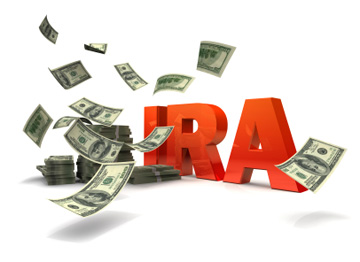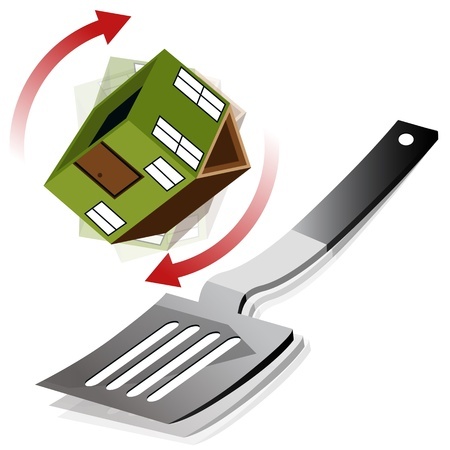Plan Now for Your Big Move This Summer
The big move - it should be in all-caps and announced with a deep, authoritative voice. THE BIG MOVE. And it's coming to your family soon. It might be from one house to another across town, or it might involve crossing many state lines. No matter the distance, amount of belongings or number of people, your big move is going to be a big deal.
 There are ways to plan for your move so the big event doesn't overwhelm you. Here are five moving tips you with your big move.
There are ways to plan for your move so the big event doesn't overwhelm you. Here are five moving tips you with your big move.
1. Less is better –
The less you have to move, the easier your move will be on your body and your wallet. It will also be easier to fit everything into your new house. While packing, create three piles. The first is your "must-go" pile. The second is your "must-sell" pile, which includes anything you haven't used in the last year, anything you have multiples of and anything you just don't want any more. The third is the "must-throw" pile, and it contains anything that can't be sold at a garage sale or donated. Start creating these piles now, and it will make moving day much easier.
2. Stock up on supplies –
Big boxes might seem like a great idea because they can hold so much stuff, but what happens when you try to lift one and carry it down a flight of steps? Stock up on boxes of multiple sizes, but keep in mind that smaller is much easier to carry. Also stock up on foam and bubble wrap to protect your fragile items, a good supply of packing tape and bold markers for labeling boxes. You'll also want to have moving blankets and hand trucks to make it easier to transport your items.
3. Rent a truck –
One trip makes the big move simple, even if you're just moving across town. Most movers find the 12- or 16-foot truck perfect for moving a few large items or the contents of a small condo or apartment.
4. Pack smart –
Load the heaviest items on the truck first. When you've got a sturdy base of the heaviest items, you can start stacking on top. This is when it's handy to list a box's contents on its side. If you have friends and family helping, they'll know not to set books on top of your china.
5. Safety and security -
Trucks are taller, wider, heavier and require more stopping distance than the vehicle you are used to driving. Take extra precaution, especially when the truck is loaded. Watch out for low-hanging tree branches and building overhangs, and use extra caution when cornering. To protect your belongings, park in well-lit areas and padlock the rear door. To make sure you've got everything you need on moving day, create a travel bag for keeping important paperwork, credit cards, identification, a change of clothes, drinks and snacks close at hand.
As you cross days off on the calendar and the big day approaches, these tips will help you sail through the event with few conflicts. Before you know it, you'll be settled in your new home. (BPT)
 Usually, when you take money out of an individual retirement account before you reach age 59 1/2, the IRS considers these premature distributions. In addition to owing any tax that might be due on the money, you'll face a 10 percent penalty charge on the amount. This is not the case, however, when you use the money to buy your first investment real estate. (Note: Technically, you don't have to be purchasing your very first home or building. You qualify under the tax rules as long as you, or your spouse, didn't own a principal residence at any time during the previous two years.) You can use up to $10,000 in IRA funds toward this purchase. If you're married, and you and your spouse are both first-time buyers, you can each pull from retirement accounts, giving you $20,000 to use.
Usually, when you take money out of an individual retirement account before you reach age 59 1/2, the IRS considers these premature distributions. In addition to owing any tax that might be due on the money, you'll face a 10 percent penalty charge on the amount. This is not the case, however, when you use the money to buy your first investment real estate. (Note: Technically, you don't have to be purchasing your very first home or building. You qualify under the tax rules as long as you, or your spouse, didn't own a principal residence at any time during the previous two years.) You can use up to $10,000 in IRA funds toward this purchase. If you're married, and you and your spouse are both first-time buyers, you can each pull from retirement accounts, giving you $20,000 to use. Start at the top: the roof
Start at the top: the roof things that are always going to happen, death and taxes. On a not so morbid note, let’s look into a few
things that are always going to happen, death and taxes. On a not so morbid note, let’s look into a few  Owning a home is part of the American Dream, yet standards on income, credit and debt are making it tougher to buy a home than it was 10 years ago. Even though requirements are relaxing, only three out of five borrowers get approved.
Owning a home is part of the American Dream, yet standards on income, credit and debt are making it tougher to buy a home than it was 10 years ago. Even though requirements are relaxing, only three out of five borrowers get approved. Certainly sounds appealing--and you may be tempted to join the ranks of those who have been successful in this field. Be forewarned, however, that like most money-making endeavors, real estate flipping requires time, money, patience and skill.
Certainly sounds appealing--and you may be tempted to join the ranks of those who have been successful in this field. Be forewarned, however, that like most money-making endeavors, real estate flipping requires time, money, patience and skill. Interest rates
Interest rates still out there for the taking, so get out there and start looking for your new home today! These low down payments are being offered by
still out there for the taking, so get out there and start looking for your new home today! These low down payments are being offered by  Here’s a summary of some thoughts from
Here’s a summary of some thoughts from 



